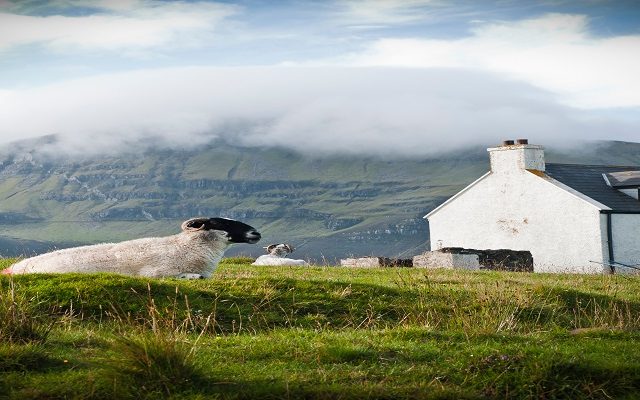Land Business Update | Week Commencing 21st November
Welcome to our update on key land management, farming, planning and energy issues.
FARMING AND FOOD
More confusion and delay over Environmental Land Management schemes in England
Defra is planning to significantly change its plans for the new ELM schemes, according to widely leaked details from a stakeholder meeting held in mid-November. Defra has not denied the leaked details and they match suggestions made to stakeholders in other meetings:
- The Countryside Stewardship scheme would be retained and extended / enhanced. It would replace the Local Nature Recovery Scheme that has been in development since 2018/19. While the late change will be frustrating to many, it may actually be a good outcome. CSS is now well understood by many land managers and the RPA has made improvements to its administration, so it is a lower risk than introducing a new scheme. Our survey with the CLA this summer found that CSS was the scheme most likely for land managers to be considering applying to. However, it has only been taken up by around a quarter of farmers to date and the scale and quality of the environmental management delivered by agreements could be increased – so it will need to be improved significantly.
- If CSS is extended / enhanced, it would have knock on effects on the Sustainable Farming Incentive (SFI), with some planned options moving into CSS. It is also understood that payment rates could increase to boost take up by farmers.
- We also understand that Landscape Recovery is likely to be continued, as it is the only part of ELM that can fund significant land use changes.
Scottish farmers can now claim for granted-aided soil tests
Farmers and land managers who have undertaken soil testing and carbon analysis under the Preparing for Sustainable Farming (PSF) and Sustainable Agriculture Capital Grant Scheme (SACGS) in Scotland can now submit their claims. Claimants must submit the soil sample results for each sample claimed and details of the business carbon audit or nutrient management plan they have prepared. Claims are to be made online here for the PSF or here for the SACGS.
A proposed land use framework for England
The Food, Farming & Countryside Commission (FFCC) is the latest of a number of organisations to propose that England needs a land use framework in order to improve how land delivers the range of benefits needed from it. Its proposal comes at a time where there is even more debate, due to the war in Ukraine and the environmental COP conferences, about food production, energy generation and improving the environment. The proposed framework is based on the principles Place, People and Public Value, and would be developed collaboratively – starting with local communities and setting out agreed principles and practices for decision making by local and national organisations. The full proposal can be found here .
New round of Countryside Stewardship Facilitation Fund now open
The seventh round of the fund is now open and it continues to pay for facilitators to advise farmers and land managers on how to work together to deliver local environmental benefits,. Previous rounds have helped 180 groups with 4,000 land managers. Both existing and new groups are eligible for the funding, and facilitators must apply by 25th January 2023. This type of approach is an environmental success story; land managers who use facilitation funding to work together tend to try a wider range of conservation management activities and they deliver greater environmental outcomes.
ENVIRONMENT
Peatland grant to assess scope for restoration opens in Wales
This ‘development grant’ is designed to will enable individuals and organisations to explore if a restoration project is feasible, gather the information needed to produce a restoration plan and develop a costed plan. Grants will be between £10,000 and £30,000 and the grant can cover 100% of costs. The scheme is open for applications until 8th February 2023. Further information is available here and please call Joel Paterson in our peatland team if you would like to discuss it.
Flooding risks will not be reduced by extreme droughts, warns the Environment Agency
The Environment Agency (EA) has warned that warm summers and droughts due to climate change do not mean a decrease in floods. In fact, quite the opposite; the more extreme weather can cause soils to get very dry, which then means their capacity to absorb and hold water is much reduced, increasing risk of runoff in heavy rainfalls. The EA launched their Flood Action Week on 21st November to raise awareness of the dangers of extreme weather, highlighting that everyone should prepare for the impacts of climate change and try to reduce the causes of it where they can.
Habitats being ‘squeezed out’ of England’s estuaries by climate change
This interesting research, carried out by Nottingham Trent University, Loughborough University and the Trent Rivers Trust, has highlighted another effect of climate change. It found that rising sea levels and lower river levels due to drought are pushing saltwater further up into the ‘freshwater tidal zones’ at the top of estuaries. The freshwater zone might naturally shift inland but man-made barriers and construction across the top of many estuaries are preventing that happening – leading to the habitats being squeezed out. The research found that over half of England’s estuaries have barriers at their upper limits, so putting the freshwater zones at risk from climate change. This could make estuaries less productive, affect fisheries and wildlife and also affect other functions such as water quality.
FORESTRY
Woodland creation and expansion supports biodiversity and healthy habitats
The Forestry Commission (FC) has highlighted that all types of woodland supports biodiversity, including boosting pollinator populations and maintaining healthy soils. Oak trees can for example support over 2,300 species. The FC has highlighted some examples of the benefits that creating new woodland next to existing trees can have:
- Glenthorne Woods project – a 9ha site next to an existing wood was cleared of rhododendron. It was planted and natural regeneration encouraged, which has significantly increased the ecological value and carbon sequestration capacity of the land.
- Chatsworth Estate project – planting a 6ha new woodland next to a river and existing woodland has expanded wildlife habitats and also created a natural flood defence for a down-stream village called Beeley.
Scottish Forestry grant scheme
The Scottish Government is going to consult on how to evolve its existing Forestry Grant Scheme. The scheme has funded 68,000 ha of woodland creation since 2015. The Government has an ambitious target of creating 18,000ha of new woodland each year by 2024/25 and has so far failed to hit that target. The consultation, which opens in January, is expected to propose a new grant for woodland along water courses and to support improved public engagement in woodland creation.
PROPERTY
Free and low-cost energy-saving actions to bring down bills
Nesta, which was originally called the National Endowment for Science, Technology and the Arts, commissioned Cambridge Architectural Research to identify actions that most households can take to reduce energy demand and therefore bills. The main measures identified are turning down the boiler flow temperature on combi boilers to 60 degrees; most are set incorrectly at 70-80 degrees, which means they are less likely to run at their optimum 95% efficiency. The work also identified lowering the settings on thermostatic radiator valves. When adopted together, the measures can save a typical household with a combi boiler around £210 a year and those with a system boiler (a boiler and hot water cylinder) around £100 a year. If the measures were adopted across the UK, they could save up to £1billion per year in energy costs and improve the UK’s energy security.






